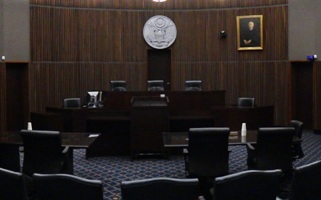 August 24, 2015, the United States Court of Appeals for the Third Circuit has issued a ruling in the Federal Trade Commission’s (FTC) favor in FTC v Wyndham 3d Cir (08/24/2015) (PDF) against organizations that employ poor IT security practices. The ruling was part of a lawsuit between the FTC and hotel chain Wyndham. This court decision affirms the FTC’s role as a digital watchdog with real-life teeth.
August 24, 2015, the United States Court of Appeals for the Third Circuit has issued a ruling in the Federal Trade Commission’s (FTC) favor in FTC v Wyndham 3d Cir (08/24/2015) (PDF) against organizations that employ poor IT security practices. The ruling was part of a lawsuit between the FTC and hotel chain Wyndham. This court decision affirms the FTC’s role as a digital watchdog with real-life teeth.
Federal Trade Commission Chairwoman Edith Ramirez issued the following statement in response to the ruling by the U.S. Court of Appeals for the Third Circuit, regarding the FTC’s case against Wyndham Hotels and Resorts for allegedly failing to reasonably protect consumers’ personal information:
“Today’s Third Circuit Court of Appeals decision reaffirms the FTC’s authority to hold companies accountable for failing to safeguard consumer data. It is not only appropriate, but critical, that the FTC has the ability to take action on behalf of consumers when companies fail to take reasonable steps to secure sensitive consumer information.”
This decision affirms a federal district court ruling, which upheld the FTC’s authority to bring data security cases under the provision of Section 5 of the FTC Act that outlaws unfair acts or practices in or affecting commerce.
 The Federal Trade Commission works for consumers to prevent fraudulent, deceptive, and unfair business practices and to provide information to help spot, stop, and avoid them.
The Federal Trade Commission works for consumers to prevent fraudulent, deceptive, and unfair business practices and to provide information to help spot, stop, and avoid them.
The FTC sued the hospitality company and three subsidiaries, alleging that data security failures led to three data breaches at Wyndham hotels in less than two years. According to the complaint, those failures resulted in millions of dollars of fraudulent charges on consumers’ credit and debit cards – and the transfer of hundreds of thousands of consumers’ account information to a website registered in Russia.
In 2014, a federal District Court in New Jersey denied Wyndham’s motion to dismiss the FTC action. The Third Circuit agreed to hear an immediate appeal on two issues: “whether the FTC has authority to regulate cybersecurity under the unfairness prong of § 45(a); and, if so, whether Wyndham had fair notice its specific cybersecurity practices could fall short of that provision.”
If you are concerned about data security – and you should be – you’ll want to read the entire opinion. But the long and the short of it is that the Third Circuit upheld the District Court’s ruling that the FTC could use the prohibition on unfair practices in section 5 of the FTC Act to challenge the alleged data security lapses outlined in the complaint. The Court also rejected Wyndham’s fair notice argument.
Of course, the case is still pending before the District Court, but the Third Circuit ruling affirms important principles for how the FTC Act applies in the data security arena.
The decision is a must-read for business executives too. The costs of not reasonably safeguarding confidential information continue to rise, underscoring the necessity for cybersecurity planning.
If you or your business have concerns regarding cybersecurity and the preservation of confidential information, contact attorney Jeffrey A. Franklin at Prince Law Offices, P.C.
Too bad the FTC ruling does not apply to the Federal Government. They get hacked and release massive amounts of personal information. What can the victims do? Nothing.
LikeLike